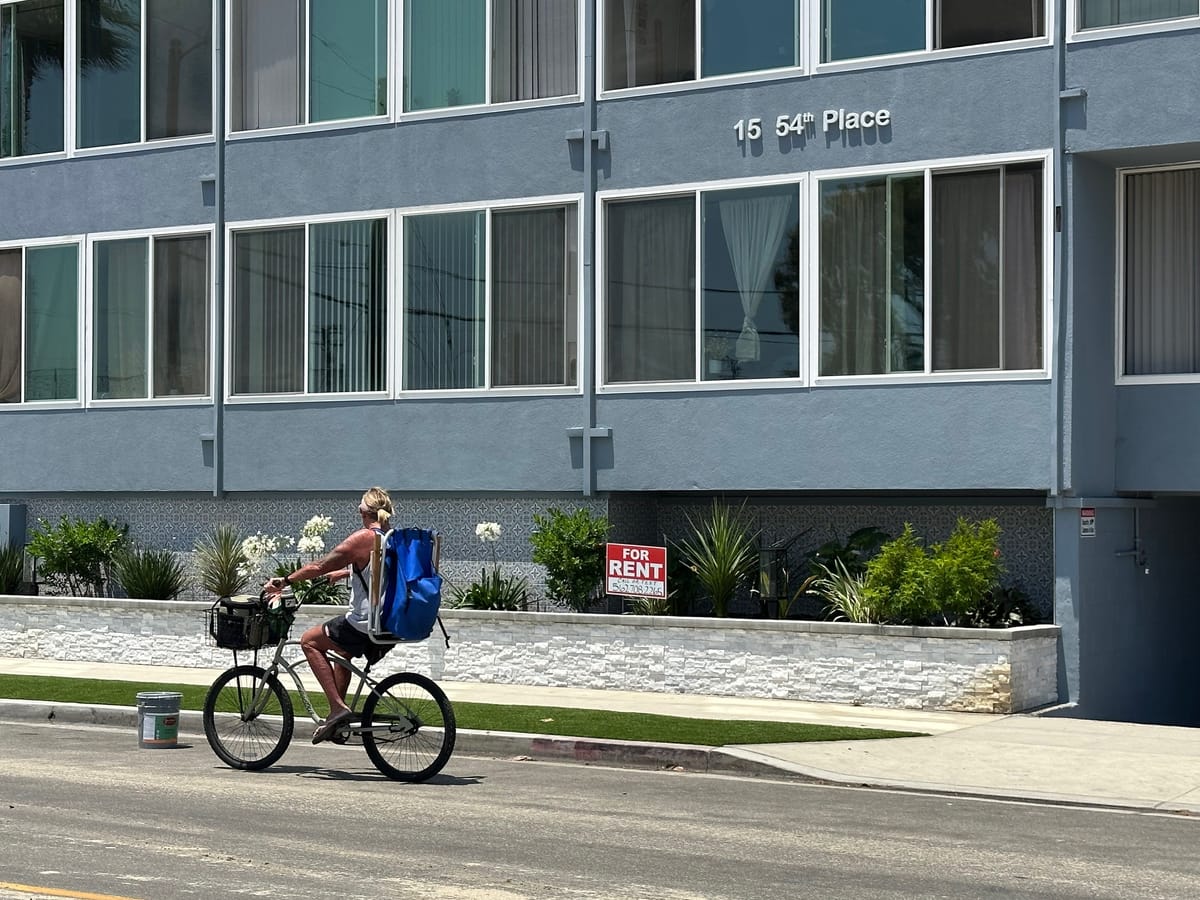Will banning Airbnb’s provide affordable housing? A new report says no
Rather than alleviate sky-high rents, a ban on short-term rentals in New York has only made hotels more expensive.

Several Long Beach neighborhoods are pushing to limit Airbnb’s and other short-term rentals, as complaints about parties, parking, and noise continue to roll in.
Supporters argue that short term rentals could have an impact on housing affordability, but new evidence from the largest housing market in the U.S. says otherwise.
Since 2021 a dozen communities around Long Beach have tried to gather signatures on a petition to limit short-term rentals to hosted listings only. The process involves mailing the petition to homeowners who must sign and return it, with more than 50% needed to pass.
So far, only one petition has been successful, in College Estates just east of Cal State Long Beach. But the city lets you try again, so several failed attempts will likely be followed by a renewed effort.
And now that Unite Here Local 11, which represents hotel workers, is sending text messages and knocking on doors in support of the limit, those renewed efforts are a lot more likely to succeed.
Noah Suarez-Sikes, an organizer with Unite Here-aligned Better Neighbors LA, pointed the Watchdog’s Jason Ruiz to a study that alleges short-term rentals have led to an increase in rents in Los Angeles.
And another study in Irvine, CA shows that rents decreased 3% in the area after a short-term rental ban went into effect.
But new evidence out of New York City suggests that, rather than affect housing affordability, these bans only make hotels more expensive—and I think that’s why the hotel workers union supports them.
In 2023, a law went into effect in New York setting pretty onerous rules for rentals of less than 30 days. They must be in a city-approved building, rented to a maximum of two guests at a time, and the owner must stay in the home as well. Anything different requires special approval from the city.
The result has been a drastic reduction in the number of short-term rentals available. In August of last year there were more than 22,000 short-term listings in NYC. That number is down to less than 4,000.
This means there could be close to 18,000 extra units available to rent, but that hasn’t put a dent in rising prices for New Yorkers.
For context, New York has more than 3.5 million housing units. The fewer than 20,000 listings that may have been converted from Airbnb’s represents roughly 0.5% of all those homes—not nearly enough to make a significant impact on citywide rents.
Last year, the median asking rent for apartments in NYC rose to $3,500 per month, while the vacancy rate dropped to a 50-year low at just 1.4%. To get the city’s vacancy rate up to even 5% they’d need an additional 175,000 homes, almost 8 times as many as were listed on Airbnb before the ban.
Similarly, Los Angeles had 1.3 million housing units (as of 2021) with roughly 3,300 short-term rental listings, concentrated Downtown and in Venice and Hollywood. That is 0.25% of the city’s housing stock—also known as, not that much!
And in Irvine, while researchers noted a 3% decrease in rents after their ban, this comes from a baseline price of $3,794 in an area where the average home sells for $930,636. Putting a marginal dent in already extremely expensive housing prices doesn’t exactly provide low income renters with extra options.
But what these bans will do is let hotels charge higher prices. In New York, the average price for a hotel room is now at a record $301 per night, up 8.5% from 2022.
"It's not surprising to me that you remove 20,000 short-term rentals, and all of a sudden, hotel rates are going up by 10%," economist Jamie Lane told Business Insider.
Long Beach allows just 800 “non-primary residence” or un-hosted short-term rentals, with no limit on hosted Airbnb’s. According to the U.S. Census Bureau, the city has roughly 180,000 housing units, making the 800 un-hosted STRs a mere 0.4% of all homes in the city.
The one neighborhood to successfully pass an un-hosted STR ban was College Estates, where 77% of residents are white, vs 26% citywide; the median age is 57, vs 36 citywide; the median household income is $121,389 vs $80,493 citywide; and the median home value is almost $100,000 more than the rest of the city, according to censusreporter.org.
Many other neighborhoods that have circulated petitions are older, wealthier and whiter than the rest of the city, just like College Estates.
Rather than provide much-needed affordable housing, limiting short-term rentals seems like another way to protect exclusive neighborhoods from any intrusion by less-wealthy people.
In the meantime, hotels will get more expensive with a lack of other options, making it harder to visit Long Beach, and potentially cutting into the $4.6 million in revenue tourism brought last year.
And, although the neighborhoods pushing to limit short-term rentals probably don't want to hear this, the way to make housing more affordable is by making it legal, and easy, to build a lot more homes.
Ed’s note: This story had been updated to clarify that the petition seeks to limit short-term rentals to hosted listings only.
We need your support.
Subcribe to the Watchdog today.
The Long Beach Watchdog is owned by journalists, and paid for by readers like you. If independent, local reporting like the story you just read is important to you, support our work by becoming a subscriber.





